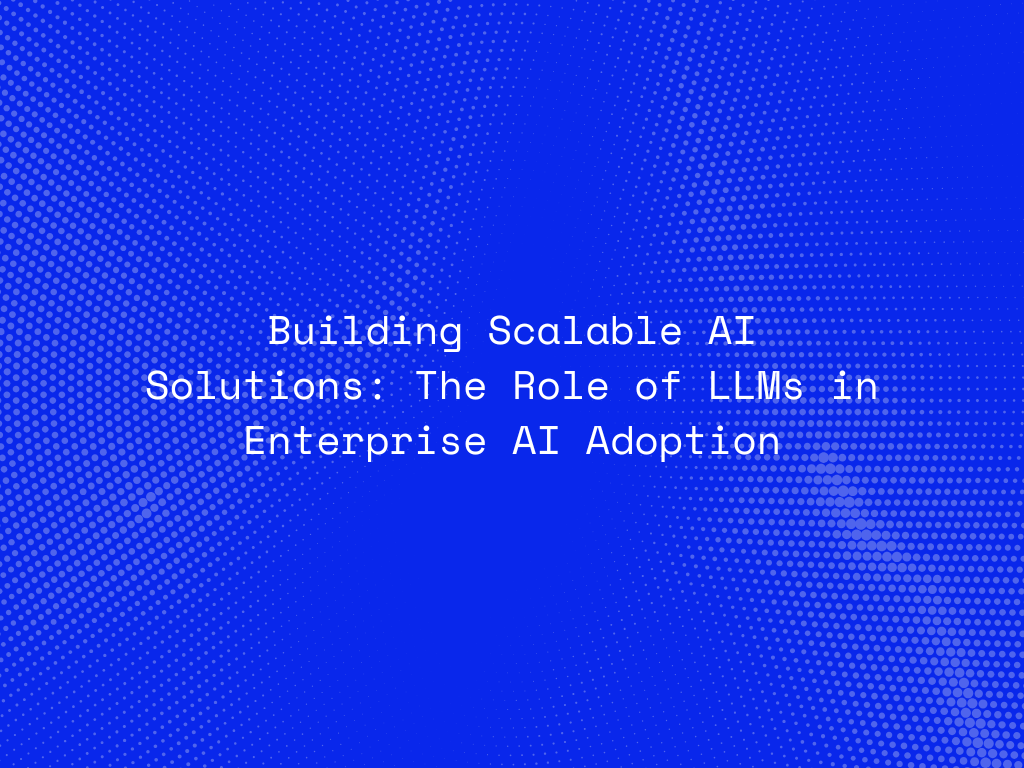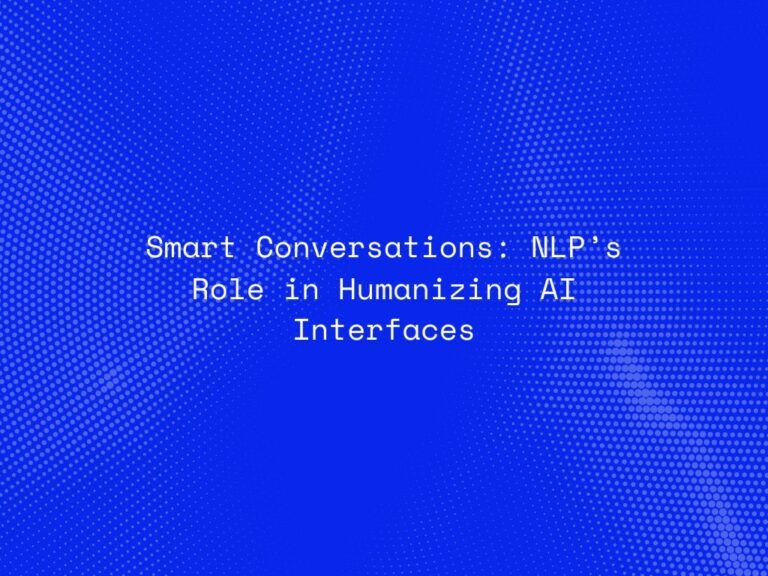As businesses embrace AI-driven transformations, Large Language Models (LLMs) are playing a pivotal role in shaping the future of enterprise AI adoption. With their ability to process vast amounts of data and generate human-like responses, LLMs are enabling organizations to build scalable AI solutions that enhance productivity, decision-making, and customer experience.
What Are Large Language Models (LLMs)?
Large Language Models (LLMs) are a class of deep learning models trained on extensive datasets to understand and generate natural language. LLMs like GPT and BERT are capable of handling complex language tasks such as text generation, summarization, translation, and question answering. This makes them valuable tools for enterprises looking to leverage AI-based automation and improve operational efficiency.
The Importance of Scalability in AI Solutions
One of the major challenges in enterprise AI adoption is scalability. Building AI models that can handle large volumes of data and serve millions of users requires not only robust architecture but also the integration of LLMs to streamline processes. By using LLMs, companies can build scalable AI solutions that easily adapt to the growing needs of their business.
How LLMs Accelerate Enterprise AI Adoption
LLMs are being used across various industries to drive AI innovation. From automating customer support with AI chatbots to enhancing data-driven insights in business intelligence platforms, these models help businesses cut costs, improve service, and deliver personalized experiences at scale. Additionally, LLM-based solutions can help enterprises reduce the complexities involved in deploying and maintaining AI systems.
Applications of LLMs in Enterprise AI
- Customer Support Automation: LLMs allow companies to build AI-driven customer service systems that can provide accurate and timely responses, improving user satisfaction.
- Natural Language Processing (NLP): By integrating LLMs into NLP applications, businesses can analyze large amounts of unstructured data, unlocking valuable insights for decision-making.
- Content Creation and Summarization: LLMs can generate human-like text for marketing, reporting, and other communication tasks, enhancing content efficiency.
Challenges of Implementing LLMs in Enterprises
Despite their benefits, implementing LLMs at scale comes with challenges, including high computational costs, the need for large datasets, and concerns around data privacy and bias in AI models. Organizations must address these issues to fully realize the potential of scalable AI solutions powered by LLMs.
The Future of LLMs in Scalable AI Solutions
As the technology behind LLMs continues to advance, their applications in enterprise AI will grow. Future improvements in model efficiency and algorithm optimization will make it easier for businesses to deploy these models on a large scale. LLMs will play a critical role in democratizing access to enterprise AI solutions, driving innovation, and transforming industries across the board.
Conclusion:
The integration of LLMs into enterprise AI strategies is key to building scalable, flexible, and intelligent systems. As enterprises continue to invest in AI-driven solutions, Large Language Models will be at the forefront of this transformation, accelerating AI adoption and delivering measurable business value.




